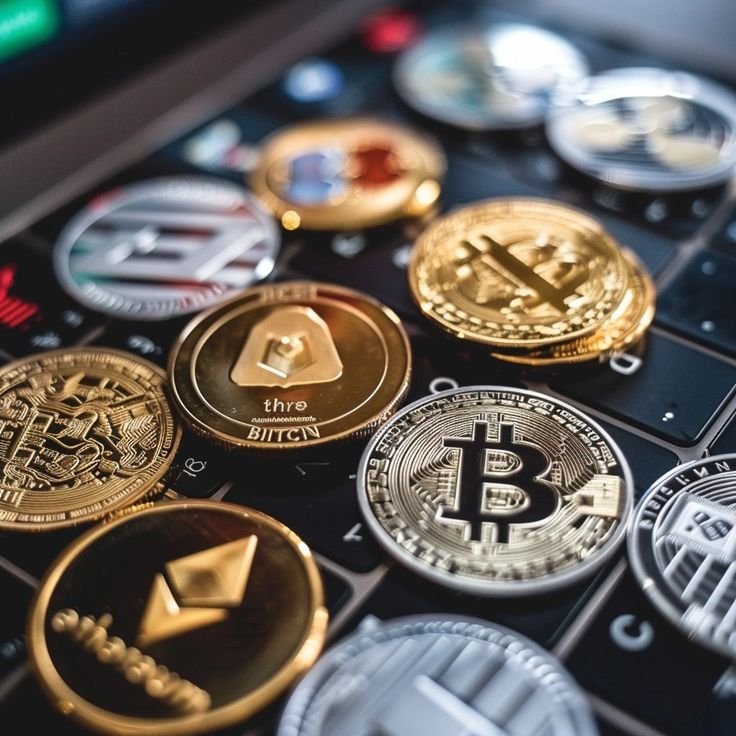Brazilian Lawmaker Proposes Bill to Allow Investment Funds to Buy Crypto
Brazil has taken another step toward mainstream cryptocurrency adoption as São Paulo MP Adriana Ventura introduces a new bill aiming to allow investment funds to buy digital assets. The bill, recently published on the Brazilian parliament’s website, seeks to bridge the gap between growing institutional demand and regulatory clarity, positioning Brazil as a key player in Latin America’s crypto market.
A Step Toward Institutional Crypto Adoption
If approved, this bill would grant Brazilian investment funds the legal framework to directly invest in cryptocurrencies. Currently, institutional investors in Brazil face restrictions that prevent them from acquiring crypto assets directly. The new legislation aims to remove these barriers, allowing funds to purchase digital assets through licensed and regulated firms.
By permitting regulated funds to invest in crypto, the bill would align Brazil with global trends. Several countries, including the United States, Canada, and European nations, have already established regulations that enable institutional investors to explore digital assets. The bill recognizes cryptocurrencies as a legitimate asset class, opening doors for new investment opportunities.
Why This Bill Matters
The introduction of this bill is significant for several reasons:
- Encouraging Institutional Participation: Brazilian institutions have largely been sidelined in the crypto market due to existing regulations. Allowing them to invest in digital assets would provide much-needed liquidity and credibility to the industry.
- Market Diversification: Institutional investors often seek diversified portfolios to minimize risks and maximize returns. Cryptocurrencies offer a new asset class that can function as an alternative investment vehicle.
- Boosting Brazil’s Competitiveness: Brazil has one of the largest retail crypto markets in Latin America, yet institutional investors remain on the sidelines. This bill would make the country more competitive in the regional and global financial landscape.
- Regulatory Oversight: The proposal aims to ensure that crypto investments are made through licensed firms, increasing investor protection and reducing risks associated with fraud and illicit activities.
The State of Crypto Regulation in Brazil
Brazil has gradually become more crypto-friendly in recent years. In December 2022, the country passed a landmark regulatory framework that established guidelines for cryptocurrency exchanges, custody services, and payment providers. The Central Bank of Brazil and the Securities and Exchange Commission (CVM) oversee crypto-related activities to ensure compliance with financial regulations.
With the approval of this bill, Brazil would further enhance its position as a leader in the Latin American crypto market. Regulators are also working on crypto tax reforms, expected to be announced by the first quarter of 2025. These reforms could bring greater transparency and accountability to the industry, ensuring that digital assets operate within a structured legal framework.
Impact on the Investment Landscape
If the bill passes, it could open the floodgates for institutional capital into the crypto market. Institutional investors, including pension funds, hedge funds, and asset management firms, would be able to allocate a portion of their portfolios to cryptocurrencies. This could lead to increased demand, liquidity, and price stability for major digital assets like Bitcoin and Ethereum.
Additionally, the move could attract foreign investment into Brazil’s crypto sector. With regulatory clarity, international investors may see Brazil as a more attractive destination for blockchain and cryptocurrency innovation.
Challenges and Concerns
While the proposed legislation marks a significant step forward, there are challenges that need to be addressed:
- Regulatory Approval: The bill must pass through multiple stages of legislative approval before becoming law. Opposition from traditional financial institutions or regulatory agencies could delay its progress.
- Market Volatility: Cryptocurrencies are known for their price volatility. Institutional investors may need risk mitigation strategies to manage potential downturns.
- Security Risks: Crypto investments come with cybersecurity risks, including hacks and scams. Ensuring proper security measures within regulated funds will be crucial.
- Tax Implications: The government must establish clear tax guidelines for institutional crypto investments to avoid confusion and ensure compliance.
Brazil’s Growing Crypto Adoption
Despite restrictions on institutional investments, Brazil has seen widespread retail adoption of cryptocurrencies. The country ranks among the top 10 globally in crypto adoption, with millions of citizens using digital assets for payments, remittances, and investment purposes.
Brazilian fintech companies and crypto exchanges have also flourished, offering services such as digital banking, crypto payments, and blockchain solutions. Notably, Brazil’s largest bank, Itaú Unibanco, launched crypto trading services in 2023, signaling the growing mainstream acceptance of digital assets.
Latin America’s Crypto Leadership
Brazil is not the only Latin American country embracing crypto. Several neighboring nations have taken steps to integrate digital assets into their economies:
- El Salvador: Became the first country in the world to adopt Bitcoin as legal tender in 2021.
- Argentina: Experiencing increased crypto usage due to hyperinflation, with citizens turning to stablecoins as a store of value.
- Colombia and Mexico: Both countries have seen growing crypto adoption, with governments exploring regulatory frameworks to support innovation.
By passing this bill, Brazil would further solidify its leadership in the regional crypto market, setting an example for other countries to follow.
What’s Next?
The next steps for the bill involve discussions in Brazil’s legislative bodies. Lawmakers, financial regulators, and industry stakeholders will weigh in on the potential benefits and risks before deciding its fate. If the bill gains approval, implementation measures will be outlined, including compliance requirements for investment funds and licensing protocols for crypto firms.
Conclusion
The proposed bill to allow investment funds to buy crypto represents a landmark moment for Brazil’s financial sector. By embracing digital assets, Brazil can strengthen its investment landscape, attract institutional capital, and position itself as a leader in the Latin American crypto economy.
However, challenges such as regulatory approval, market risks, and security concerns must be addressed to ensure a smooth transition. If successful, this move could set the stage for broader cryptocurrency adoption and innovation in Brazil, marking a new era of institutional participation in the digital asset space.
As the bill progresses through legislative channels, all eyes will be on Brazil to see how it shapes the future of institutional crypto investments. Whether or not the bill passes, its introduction signals that digital assets are becoming an integral part of the global financial system.
ALSO READ: Thailand’s Blockchain Revolution: New Advisors Lead the Way




